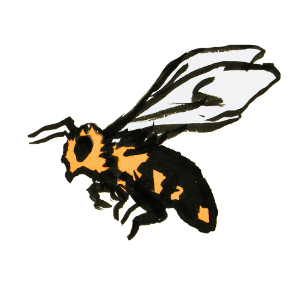Beehive barriers

It is natural and obvious that there will be conflicts between elephants and people when they share same space. Elephants like to feed on crops cultivated by people. And they can easily bring poor small-scale farmers to the edge of survival. This, of course, does not contribute to a good relationship. In defending their own crops, the farmers can even kill an elephant. But more often it just deepen already bad relationships. This allows the poachers to operate in the area without penalties and the work of conservationists does not find much support in villages.
There is an area in southern Chad and northern Cameroon where there is not always a peaceful coexistence between elephants and humans. The region has great tourist potential and it is important to show people that the elephants belong there and that they themselves can benefit from their presence. However, it is necessary to protect the fields of farmers against regular wild elephant raids.
One of the ways to protect the fields are biological barriers of bee hives. Elephants are very afraid of bees, and the method has been successfully applied for several years in East Africa. From 2015 in Chad and 2017 in Cameroon, we are building such barriers to improve coexistence between humans and elephants and thus prevent potential poaching. We would like to see greater use of these non-violent methods also in other areas. In addition to reduction of demage caused by elephants, beekeeping can also bring other income to natives.
Although we expect sustainability of the project we still need some initial funding to build beehives and install them in the fields and new locations.
We cooperate on a monitoring of elephants and the damages caused by them with local non-profit organizations that have been advocating for wildlife and small peasants and nomadic herders – A.L.C.P. in Chad and FIDIDA in Cameroon.

